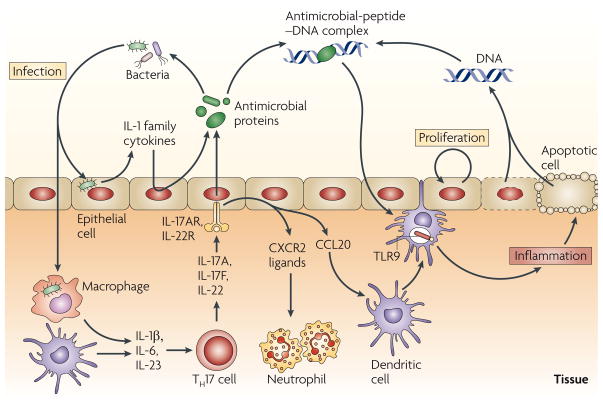Figure 2. Cytokine networks and antimicrobial peptides at epithelial-cell surfaces.
In response to bacterial infection, the interleukin-1 (IL-1) family cytokines, such as IL-1β, potently induce the expression of antimicrobial proteins by the epithelium. IL-1β, together with IL-6 and IL-23, can also induce the differentiation of T helper 17 (TH17) cells, which produce IL-17A, IL-17F and IL-22. These cytokines further induce antimicrobial-protein expression by the epithelium. IL-17A can also induce the production of CC-chemokine ligand 20 (CCL20), which has antimicrobial activity, recruits dendritic cells and increases the production of CXC-chemokine receptor 2 (CXCR2) ligands that are important in neutrophil recruitment. This response is beneficial to the host during an acute infection. However, in autoimmune diseases (such as psoriasis) cationic antimicrobial peptides, which are present at high levels, can interact with negatively charged DNA that is released from dying cells (cell death occurs as a result of increased cell turnover during inflammation). Antimicrobial-peptide–DNA complexes can amplify inflammation in the skin by activating Toll-like receptor 9 (TLR9) signalling.

